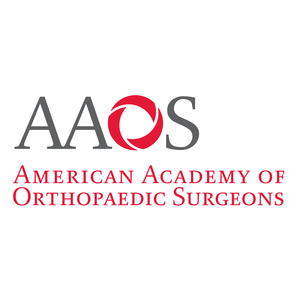Study links high cholesterol levels with rotator cuff surgery failure; statin use prior to surgery decreases risk
SAN DIEGO, Calif., March 14, 2017 /PRNewswire-USNewswire/ -- Patients with higher cholesterol levels face a significantly greater risk for failure of minimally invasive (arthroscopic) rotator cuff surgery, according to a new study to be presented on Friday, March 17, at the 2017 Annual Meeting of the American Academy of Orthopaedic Surgeons (AAOS). According to the study, commonly-used cholesterol lowering drugs, called statins, diminish this risk.
"The study found an association between the use of statin lipid lowering agents and mitigation of the risk for revision surgery, even in patients with elevated cholesterol levels," said Brian C. Werner, MD, an orthopaedic surgeon at the University of Virginia School of Medicine and lead author of the study.
Approximately 200,000 Americans undergo rotator cuff surgery, the repair of the primary tendons and muscles in the shoulder, each year.
In the study, researchers reviewed a private insurer patient database of nearly 31,000 patients undergoing arthroscopic rotator cuff repair from 2007 to 2014. Patients were divided into normal, moderate and high cholesterol groups, based on their total cholesterol levels (the measure of low-density lipoprotein [LDL], also known as "bad" cholesterol, and high-density lipoprotein [HDL], or "good cholesterol"), LDL levels alone, and triglycerides, another form of fat in the blood that increases the risk of heart disease. The patient groups were further analyzed based on whether or not they took statins before and after surgery.
Among the findings of the research:
- The rate of revision rotator cuff surgery was significantly increased in patients with moderate or high total cholesterol and LDL levels compared to patients with normal levels.
- Among the patients with moderate or high cholesterol, those who were not taking statins before or after surgery had significantly higher rates of revision surgery.
- Patients taking statins prior to or after surgery did not have higher rates of revision surgery, even if their cholesterol levels were high.
- Patient triglyceride levels had no impact on rotator cuff surgery outcomes.
"Additional study of the association between statins and rotator cuff surgical outcomes is encouraged to determine if improved cholesterol control can improve clinical outcomes following arthroscopic rotator cuff repair," said Dr. Werner.
2017 AAOS Annual Meeting Disclosure Statements
The American Academy of Orthopaedic Surgeons
With more than 39,000 members, the American Academy of Orthopaedic Surgeons (AAOS) is the world's largest association of musculoskeletal specialists. The AAOS provides education programs for orthopaedic surgeons and allied health professionals, champions and advances the highest musculoskeletal care for patients, and is the authoritative source of information on bone and joint conditions, treatments, and related issues.
Visit AAOS at:
Newsroom.aaos.org for bone and joint health news, stats, facts, images and interview requests.
ANationinMotion.org for inspirational patient stories, and orthopaedic surgeon tips on maintaining bone and joint health, avoiding injuries, treating musculoskeletal conditions and navigating recovery.
Orthoinfo.org for patient information on hundreds of orthopaedic diseases and conditions.
Facebook.com/AAOS1
Twitter.com/AAOS1
SOURCE American Academy of Orthopaedic Surgeons
Related Links
WANT YOUR COMPANY'S NEWS FEATURED ON PRNEWSWIRE.COM?
Newsrooms &
Influencers
Digital Media
Outlets
Journalists
Opted In





Share this article